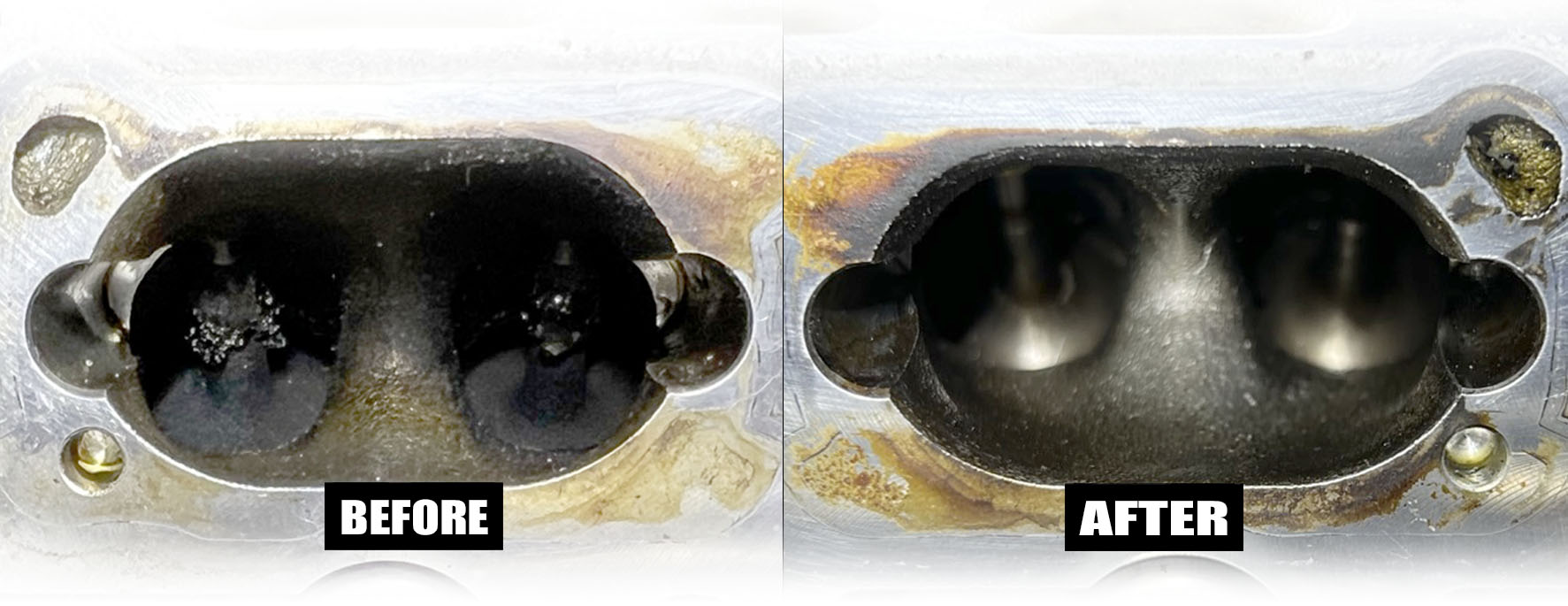
Valve decarbonizing and intake port cleaning should be performed every 30,000 – 40,000 miles on modern cars. Most modern cars no longer use direct port fuel injection because of increasing emissions standards. Port fuel injection provided a secondary benefit of keeping the valves and intake ports clean by shooting fuel into the intake port behind your engine’s intake valves. Since 2004, modern engine design has evolved to use direct fuel injection for increased efficiency and reduced exhaust emissions on most vehicles. The drawback is that the fuel is no longer being sprayed into the intake ports and is now directly injected into the combustion chamber. As a result, small dust particles that got past the engine air filter, carbon, and oil vapors are allowed to mix and turn into a hard and sticky goo that accumulates in the intake ports and on the intake valves. The sticky goo is often referred to as Carbon Deposits. As the Carbon Deposits accumulate they start to reduce and eventually choke off the airflow needed for the engine to breath. It is not unlike clogged arteries in the heart. The results are drivability issues, increased emissions, reduced power, and poor fuel economy. When Carbon Deposit build-up becomes moderate and severe, they will often trigger a check engine light with various malfunction codes that often point to devices that don’t need to be replaced. At its worst, the engine simply will not want to idle or run.
